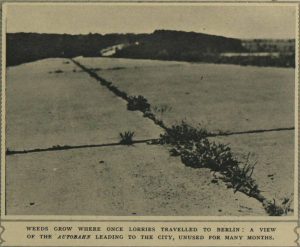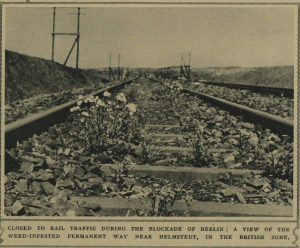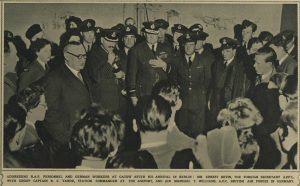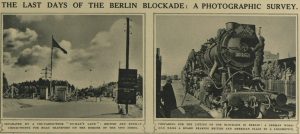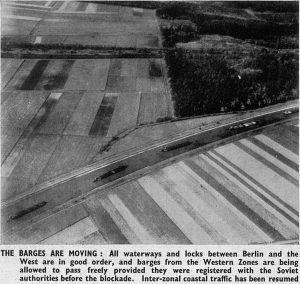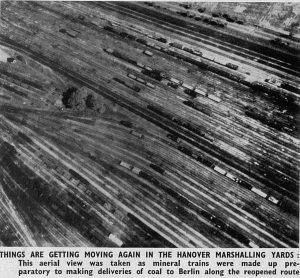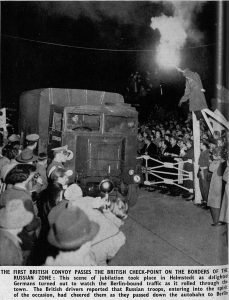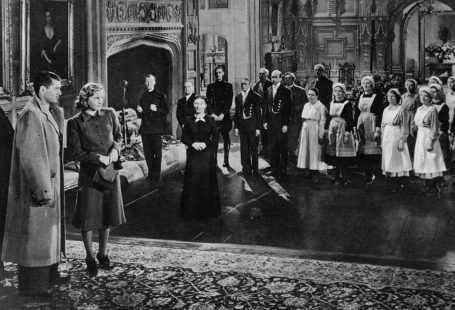As we welcome a new month, we at the Archive take the opportunity to delve into historical events that have occurred in the month of May over the years.
Lewis and Clark
On 14 May 1804, Lewis and Clark departed St Louis on their expedition west. It was the first American expedition to explore the western half of the United States. The expedition was ordered by President Jefferson following the Louisiana Purchase to, in part, map this newly acquired territory. The journey brought Lewis and Clark past the continental divide and up through the Pacific Northwest.
Along with mapping new lands, Lewis and Clark were to study the flora and fauna of the lands they trekked through. When they returned to St Louis, they brought with them journals, maps, and illustrations.
In 1905, The Sketch reported on the centenary exhibition in Portland, Oregon, put on in honour of their discoveries.

Telegraph
A significant moment of progress in long-distance communication came on 24 May 1844 when Samuel Morse, the inventor of the telegraph, sent the first official telegraph message from the Capitol building in D.C. to Baltimore, Maryland. The significance of this moment is mirrored in the report of the ‘first intelligible radio message ever transmitted by lunar reflection’ being sent and received. The message that was sent was the same as that used by Samuel Morse in 1844: ‘What hath God wrought’.

Wall Street crash
While we all easily recall the Wall Street crash of 1929, the Panic of 1893 may not be so well known. The 5th of May saw dramatic drops in the stock market, shepherding in an economic depression in the United States that saw unemployment rates soar and would last until 1897. By year’s end, there were some 600 banks and 15,000 businesses shuttered.


The sinking of the Lusitania

On 7 May 1915, off the coast of Ireland, the British ocean liner Lusitania was torpedoed by a German submarine. The attack resulted in the death of 1,198 of its 1,924 passengers and crew. Of those who perished, 128 were Americans; this tragedy subsequently hastened, and was a factor in, the United States’ entry into the First World War two years later.
German submarine attacks in the Atlantic had increased, and Germany had officially declared the water surrounding the United Kingdom a war zone by May 1915. However, as the Lusitania was not a military vessel, the attack caused international uproar.
Prior to its sailing, the German Embassy in the United States issued a caution that ran in local papers. In part, it read: ‘Travellers intending to embark for an Atlantic voyage are reminded that a state of war exists between Germany and her Allies and Great Britain and her Allies’. You can read the full statement below, report in the Exeter and Plymouth Gazette.

The warning by the German Embassy had little impact on prospective passengers and did even less to assuage American opinion following news of the deaths. It was quickly assumed that this attack would greatly impact neutral nations and, in particular, that of the United States.

As expected during a time of war and tragedy, emotions ran high among the public once word broke of the attack. Opinions of the event and the targets of individual ire varied amongst the newspapers’ readers. In the following letters submitted to the Liverpool Echo and printed on 10 May 1915, you can get a sense of these varied reactions.
The event generated many headlines and stories for newspapers as news of the event and its aftermath began to be reported. Below are a sampling of some of the articles printed during this time.





Explore more stories on Lusitania
George VI’s coronation

On 12 May 1937, George VI was crowned at Westminster Abbey following his brother’s abdication. A coronation is always an occasion covered heavily in newspapers, but for one that was accompanied by such intrigue and scandal due to Edward VII’s abdication, it was given all the more attention.

Find more coverage of his coronation
Blockade lifted
A pivotal event in the post-Second World War world and the developing Cold War was the lifting of the Berlin blockade by Soviet Russia. One minute after midnight on 12 May 1949, after 318 days, the blockade was finally lifted. Put in place by Soviet Russia, the blockade blocked off the Western Allies’ railway, canal, and road access into West Berlin. Without a means of getting supplies to West Berlin, the Berlin Airlift was organised by the Western Allies, which involved supplies being flown over and dropped into West Berlin by the British Royal Air Force, the United States Air Force and the Royal Canadian Air Force, to name a few.
With so many involved in countering the blockade, it is unsurprising that newspapers covered so many pages of print to cover it being lifted. The Sketch and Illustrated London News printed numerous photographs of the results of the blockade and the first trains travelling into the city following the end of the blockade.







